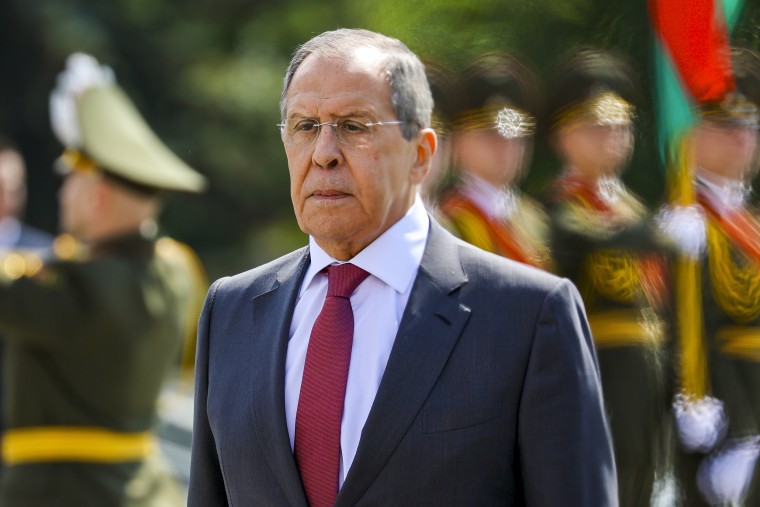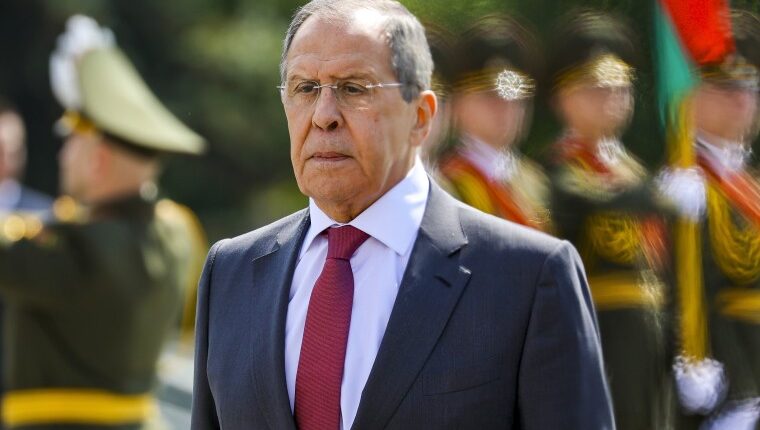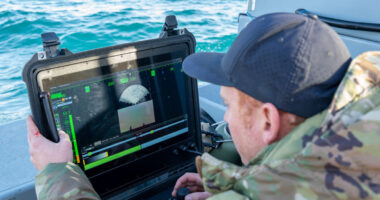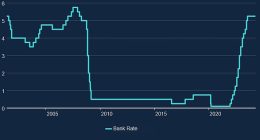Ukraine expressed concern Friday over the willingness of some former U.S. government officials to meet with Moscow’s top diplomat and other Russian figures, asking whether such discussions had eroded Washington’s support for Kyiv.
NBC News on Thursday reported that former senior U.S. national security officials had held secret talks with prominent Russians close to the Kremlin, including Russian Foreign Minister Sergey Lavrov. The report said that the Biden administration was aware of but not directing the talks, which aim to pave the way for future diplomacy to end the Ukraine war.
A Ukrainian official responding to the report said that Kyiv is “closely monitoring the publications and comments regarding the secret meeting” as well as reports that “similar backroom consultations between U.S. and Russian citizens took place in other parts of the world.”
“Given the timing of the appearance of these materials in the mass media on the eve of the Vilnius summit, the question arises whether Washington’s tough position regarding the invitation of Ukraine to NATO is somehow not connected with these backroom consultations,” the official said in a statement on behalf of the Ukrainian government.
Next week, President Joe Biden will travel to Vilnius, Lithuania, for a NATO summit. Despite Kyiv’s hopes to join the alliance, Biden has said Ukraine won’t get to circumvent NATO’s extensive requirements for admission, and NATO’s secretary-general has said an invitation will not be issued during the summit.
Meanwhile, one of the participants in the Lavrov meeting, outgoing Council on Foreign Relations President Richard Haass, defended his decision to meet with Lavrov in an op-ed posted Friday to online publishing platform Substack, calling such interactions “valuable opportunities to keep channels of communication open at moments when official interactions are either nonexistent or unproductive and the stakes high.”

He wrote that participants in such talks, known as Track Two diplomacy, “often feel more comfortable speaking candidly and testing new ideas or proposals.” He added that “exchanges of this sort have the best chance of being useful if they are kept confidential.”
“Critically, such meetings are conversations, not negotiations,” Haass wrote. “Those involved speak for themselves, not for any institution they might be affiliated with, and certainly not for the U.S. government, although relevant government officials are kept informed about what is taking place.”
After the Lavrov meeting in April, U.S. participants briefed the White House about what was discussed, NBC News previously reported.
The Russian Foreign Ministry confirmed Friday that Lavrov had met in April with Council on Foreign Relations members but said that no peace plan for Ukraine had been on the agenda, asserting that they had discussed a broader range of international issues.
“Reports about secret talks on Ukraine … with the American side do not correspond with reality. It’s a fake,” ministry spokeswoman Maria Zakharova said on Telegram.
In the wake of the disclosure of the Lavrov meeting, several former U.S. diplomats have publicly questioned whether such engagements with Russians undermine Ukraine’s leverage or contradict the Biden administration’s long-standing position that no backroom deals will be cut with Moscow about Ukraine’s future.
“As we’ve said repeatedly, nothing about Ukraine without Ukraine,” White House National Security Council spokesman Adam Hodge said Friday. “We will continue to give Ukraine what it needs to succeed on the battlefield so it can negotiate from a position of strength when it thinks the time is right.”
The Ukrainian official responding to the Lavrov meeting also emphasized that Lavrov and other Russian government leaders remain under U.S. sanctions.
“There is room for a legal assessment of the legality of such a meeting with a sanctioned person,” the official said.
The U.S. government and other nations imposed sanctions on Lavrov, President Vladimir Putin and other Russian leaders in February 2022 on the second day of the war, citing “Russia’s unjustified, unprovoked, and premeditated invasion of Ukraine.”
The U.S. sanctions froze any assets the Russians had in the United States and bar U.S. citizens from conducting business transactions with them. The sanctions did not prohibit Americans from speaking or meeting with the Russian officials.
Source: | This article originally belongs to Nbcnews.com










